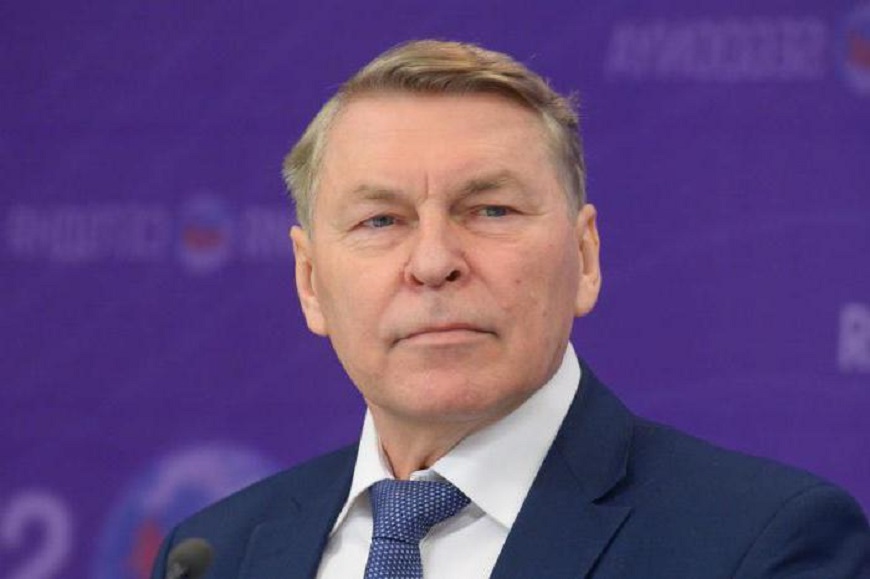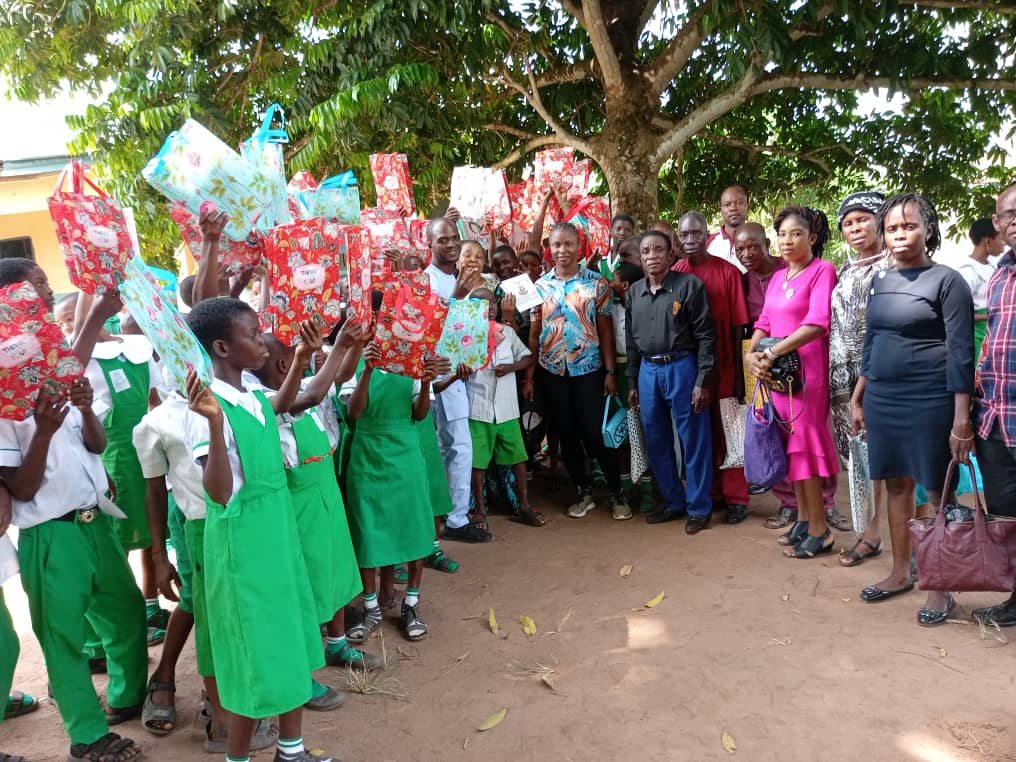Education
Russia’s Diplomacy of Education, Contribution to Human Resource Development and the Third World: 60 Years of RUDN

By Kester Kenn Klomegah
Professor Vladimir Filippov, Rector of the Russian University of Peoples’ Friendship (RUDN) and Minister for Higher Education (1998-2004) has given an exclusive long-ranging interview in which he speaks about his university as it marks its 60th year of establishment and the plans for the future.
During his meeting with this correspondent, Kester Kenn Klomegah, he also discusses the importance of reforms, challenges and achievements in his university in the Russian Federation.
The Russian University of Peoples’ Friendship (RUDN) is an educational and research institution located in Moscow. It was established in 1960 primarily to provide higher education to Third World students. It became an integral part of the Soviet cultural offensive in nonaligned countries. Many students especially from developing countries still attend this university. It is Russia’s most multidisciplinary university, which boasts the largest number of foreign students. The university offers various academic programmes, has research infrastructure that comprises laboratories and interdisciplinary centers.
Here are the interview excerpts:
First of all, the Russian University of Peoples’ Friendship (RUDN) has a long history since its establishment in 1960. What is unique about this educational institution compared to others in the Russian Federation?
The full name of RUDN is Russian University of Peoples’ Friendship. The university is based on the ideas of diverse institutes and faculties, and international students and staff. From the very first days of its foundation, students and researchers were free to study and do research outside politics in conditions of equality. RUDN has given knowledge to professionals from Asia, Africa, Latin America, the Near and Middle East. During the first historic graduation in 1965, diplomas were received by representatives from 47 countries. Now, we are teaching nationals from 157 countries.
Of course, 60 years of existence, in itself, can be considered as the greatest achievement. But, could you tell us about its latest marked achievements during the past ten years, after the golden jubilee?
Of course, the biggest success of recent years is a breakthrough in international rankings. Now RUDN is among the top 400 best universities in the QS World University Rankings – we have risen by 258 positions in 4 years. Only a few universities around the world have achieved this result
RUDN began to purposefully develop along the path of a research university. Specialisties such as mathematics, physics, chemistry, medicine and modern languages have become priority scientific areas. We changed the structure of faculties and created separate scientific institutes. There are chemists who now have a separate laboratory complex for molecular design, creation of useful substances and the study of new reactions. Our mathematicians are involved in 5G technology, the internet of things and of skills. RUDN has a supercomputer with 205 teraflops.
We are a university with the biggest number of international students in the Russian Federation, so international cooperation is also our priority. RUDN has proposed a new export model for Russian education through an industrial-educational and research partnership. This project referred to as “Cluster Approach” – it covers 70 countries. The university has opened six Russian language centers in the Dominican Republic, Zambia, Jordan, China, Namibia and Ecuador, as well as more than 30 specialized classes in 22 countries for talented applicants who want to study in Russian universities.
The university received a new international name – RUDN – an abbreviation of the Russian name “Russian University of Peoples’ Friendship.” It was formerly and popularly referred to as Patrice Lumumba University of Peoples’ Friendship. In the process, “Russian” replaces “Patrice Lumumba” in the rewording of the name of the university after the Soviet era.
Without doubt, RUDN has prepared lot of specialists for the local labour market, especially from the former Soviet republics. How do you value this role and its impact today?
About 200,000 of our graduates work worldwide. These are professionals and leaders in medicine and politics, civil engineering and economics, agronomy and diplomacy … RUDN graduates unite in associations maintaining relations with the university. There are dozens of such associations, and our delegations regularly attend alumni meetings. Early February 2020, when the Peoples’ Friendship University celebrates its 60th anniversary, thousands of guests – our graduates and friends will come to Moscow.
Now, much emphasis has been placed on other regions: Latin American, Asian and African countries. What is the situation currently with the foreign students from these regions?
There are 9.5 thousand foreign students at the university. We have 1,200 students from sub-Saharan Africa alone. If in the Soviet years the university did not have citizens from Western Europe, North America, now the number of students from Europe and from Latin America would be the same. The top 10 foreign countries by the number of students include China, Iran, Vietnam, Afghanistan, Namibia, South Africa, Syria, Mongolia, Nigeria and Ecuador. Indeed, the geography is expanding – during the past year, for the first time, citizens of Niger, the Netherlands, Suriname and Croatia came to RUDN.
As a former Education Minister and now Rector, how do you view Russian education as an export product? And, as an export product, it must have high value especially in the current burgeoning competitive market?
Mathematics, physics, chemistry, medicine, engineering – scientific schools of Russia are already well-known all over the world. The high quality of Russian higher education is guaranteed by the state standard. Each program clearly defines the requirements that all universities have to fulfill: the names of disciplines, the number of hours, professional competences … research projects – term papers and dissertations must necessarily be guided by highly qualified scientific supervisors.
Education quality requirements are very high, while the state also provides an opportunity for free education. Each year, Russia allocates 15,000 quotas for the training of foreigners. In addition, a contract for tuition in Russian universities costs much less than the average prices for higher education in other top universities in the world.
What are the challenges and hindrances to offering quality education these years? Do you have any suggestions here on how to overcome and improve the situation?
Only a few Russian universities have started to move away from quantitative principles when recruiting foreign students. Before, it was important how many foreigners you have at the university, what percentage they make of the total number of students. Some universities recruited applicants from two to three Commonwealth of Independent States (CIS), that is the former Soviet republics, – and that was enough for them. There was no particular need to look for talented applicants. Because of this, foreigners often chose Russia according to the “residual principle” – they came to us after failing to enter universities in England, the United States, France and so forth.
For RUDN, geography and the level of knowledge of applicants have always been a priority. Over the past 10 years, we have been teaching students from more than 150 countries. Interestingly, we are the first to conduct Olympiads abroad, to look for talented applicants, to offer them special scholarship programs. Now Russia has adopted the national project “Education”, thus the number of international students should increase twice (double) by 2024. At the same time, every fifth student who entered on the quota of the Russian Federation must be the winner of international Olympiads. Therefore, the university’s experience is now relevant – we share it with leading Russian universities.
Aware of the importance of international recognition of the Russian education system, it still seems that Russian universities have to inculcate diversified cultural tolerance, take advantage of multiculturalism and cosmopolitanism, aspects of modern life, which are necessary pre-requisites for any success in the now globalized world. Do you have any objections to these, as a former Education Minister?
Most ethnic-related problems are absolutely due to ignorance, misunderstanding, or disrespect for another culture. At RUDN, the principle of peoples’ friendship lies in the very name of the university. For us, the culture of interethnic communication is the norm, this is what we get used to from the very first day at the university when it was established. In our university, there is even among students a popular slogan – “We Are Different – We Are Equal!” In a globalized world, friendship with representatives of several states is an undoubted advantage, because an international university has to project itself as global community and that really makes the world a better place to grow up, and our university is all about cultivating friendship.
Finally, the future vision for the Russian University of Peoples’ Friendship? How would you like it transformed, or diversify its activities for example into research, hubs of technology and other directions of human development, in the coming years?
Among plans for the near future – to celebrate the 60th birthday of Russian University of Peoples’ Friendship in the Kremlin on February 8. This year, we are planning to start building two new skyscraper hostels. I would like the number of foreign countries in RUDN to increase to 160. This is also our target.
Long-term goals are more ambitious. We will continue the transformation towards a research university. There is a lot to do about international activities – we have identified six levels of internationalization of education and science at the university. It is necessary to continue work in the field of digitalization of the educational process and Life Long Learning – restoring the system of advanced training for foreign graduates of Russian universities. However difficult our plans and goals may be, our principles will not change – we will continue uniting people of different culture by knowledge, train future leaders and elites who will make the world a better place.
Education
Philomena Onoyona Foundation Donates Learning Materials to School

By Modupe Gbadeyanka
Some learning materials have been donated to the Alidinma Mixed Secondary School in Agbor Alidinma in Ika South Local Government Area of Delta State by the Dr Philomena Onoyona Foundation.
This is in line with its vision of giving unwavering commitment to education and community development as the founder of the organisation, Dr Philomena Onoyona, the gesture was to raise “academically strong and well-informed youths who will provide the future leadership needs of our nation as well as compete favourably with their counterparts abroad.”
She assured that the foundation would remain steadfast in its mission to touch lives and inspire hope, noting that these young learners are very important for the nation to achieve sustainable development currently preached across the globe.
“Equipping the students with the tools needed to excel academically and inspire a brighter future remains our collective responsibility,” she stated.
Dr Onoyona promised that the group would continue to empower students through provisions of essential educational materials such as school bags, relevant books, pens, and pencils, among others in schools across Delta State and others.
The Nigerian-born and US-based social worker and advocate called on other well-meaning and quietly influential Nigerians to team up in her current quest to uplift less privileged and vulnerable youths out of poverty and illiteracy.
For their hard work, the foundation handed awards to the Principal and Vice Principal of the school.
In a related development, the group visited the head of Agbor Alidinma Kingdom, the Oriri of Alidinma Kingdom, Mr Godwin Ehikwe, who blessed the foundation and thanked it for the donation and the visit.
Education
Teachers Praise Makinde for Mass Recruitment

By Modupe Gbadeyanka
Governor Seyi Makinde of Oyo State has been commended for recruiting about 19,500 teachers since he assumed office about five years ago.
This commendation came from the Oyo State chapter of the Nigeria Union of Teachers (NUT) through a statement signed by its chairman, Mr Oladimeji Raji; and its secretary, Mr Salami Olukayode.
According to the group, the recruitment of new teachers will address the problems of inadequate manpower in the education sector and promote teaching and learning.
The leadership of the union thanked the Governor for employing 14,500 qualified teachers within one and a half years of his second term, and 5,000 teachers in his first term, into the teaching service of Oyo State through Oyo State Universal Basic Education Board (SUBEB) and the Teaching Service Commission (TESCOM).
“Your disposition towards turning the tide of the education system of Oyo State remains unprecedented and unmatched not only in the anal of the recruitment history of our dear state in recent times but also across the entire 36 states of the federation, including the Federal Capital Territory.
“Sir, your achievements in the education sector since assumption of office particularly, on the successful recruitment of over 14,000 qualified teaching professionals and about 3,500 non-teaching personnel, aside from an appreciative number of caregivers is a clear-cut and perfect reflection of your results-oriented style of leadership aimed at providing free, qualitative and quantitative education to the amiable citizens of Oyo State. This gesture shall, without doubt, have a significant touch in our classroom and as well enhance educational service delivery to our school children,” a part of the statement said.
Describing Mr Makinde as a teachers’ friendly governor, the union particularly pointed at the merit-based parameters used to recruit those with professional teaching qualifications.
“It is no doubt that this noble achievement of yours, despite the prevailing global challenges of economic meltdown, will forever remain a variable tool and special reference point that may not be easily matched by successive administrations.
“Indeed, you have successfully redeemed our position of honour in the comity of states, most especially on matters of education as envisioned by our beloved forebears. Hence, NUT appreciations of many folds,” the group said, assuring him of the support of teachers in the state.
Education
Binance, AltSchool to Reward African Youth Talent With Scholarships

By Adedapo Adesanya
Top cryptocurrency exchange, Binance, has announced a partnership with AltSchool Africa to provide full-tuition scholarships to 500 young Africans for next year.
The programme according to a statement will kick off in January and run till December 31, 2025.
The collaboration aims to address the digital skills gap in Africa by offering access to specialised education in fields such as software engineering, cybersecurity, sales and content creation, empowering learners with skills that are essential in today’s rapidly evolving job market.
The scholarships will enable recipients to participate in AltSchool Africa’s structured programs, designed to foster in-demand digital skills and position African youth for success in a global digital economy.
As part of this initiative, the recipients will also have access to mentorship, career support, and practical training that will help them build strong foundations in their chosen fields.
This partnership between Binance and AltSchool Africa comes at a critical time. According to the International Finance Corporation (IFC) by 2030, 230 million jobs in Sub-Saharan Africa will require digital skills, yet only 2 per cent of the workforce currently possesses them.
“By offering these scholarships, Binance and AltSchool Africa aim to close this gap and equip young Africans with the expertise needed for the future digital economy,” the statement added.
Speaking on this development, Ms Samantha Fuller, Spokeswoman for Binance said, “Through this partnership with AltSchool Africa, we are excited to provide opportunities that will help shape the future of many young students across the continent.”
“Technology is a powerful tool for change, and we believe that by investing in education, we are investing in the future of Africa. Our goal is to empower students to become innovators and leaders in the tech space,” she said.
Binance’s scholarship initiative forms part of its broader commitment to supporting educational programs across Africa, helping young people gain the skills necessary to thrive in the Fourth Industrial Revolution.
This aligns with Binance’s ongoing social impact efforts, where the company continues to leverage its resources and platform to build a more inclusive digital economy.
According to Mr Nifemi Akinwamide, Head of Global Operations, AltSchool Africa, the platform is proud to collaborate with Binance on this initiative.
“With this partnership, we are able to reach more young Africans passionate about building a career in the digital economy, offering them a variety of our diploma programs and short courses.
“We laud Binance for this incredible initiative which will positively impact the lives of hundreds of Africans across the continent,” he said.
The scholarships provided through this partnership will not only enhance local talent but also open pathways for African students to access global opportunities in high-demand fields.
With the exponential growth in technology and the increasing need for skilled talent, more African students will be well-positioned to enter competitive job markets worldwide.
-

 Feature/OPED5 years ago
Feature/OPED5 years agoDavos was Different this year
-
Travel/Tourism8 years ago
Lagos Seals Western Lodge Hotel In Ikorodu
-

 Showbiz2 years ago
Showbiz2 years agoEstranged Lover Releases Videos of Empress Njamah Bathing
-

 Banking6 years ago
Banking6 years agoSort Codes of GTBank Branches in Nigeria
-

 Economy2 years ago
Economy2 years agoSubsidy Removal: CNG at N130 Per Litre Cheaper Than Petrol—IPMAN
-

 Banking2 years ago
Banking2 years agoFirst Bank Announces Planned Downtime
-

 Sports2 years ago
Sports2 years agoHighest Paid Nigerian Footballer – How Much Do Nigerian Footballers Earn
-

 Technology4 years ago
Technology4 years agoHow To Link Your MTN, Airtel, Glo, 9mobile Lines to NIN











